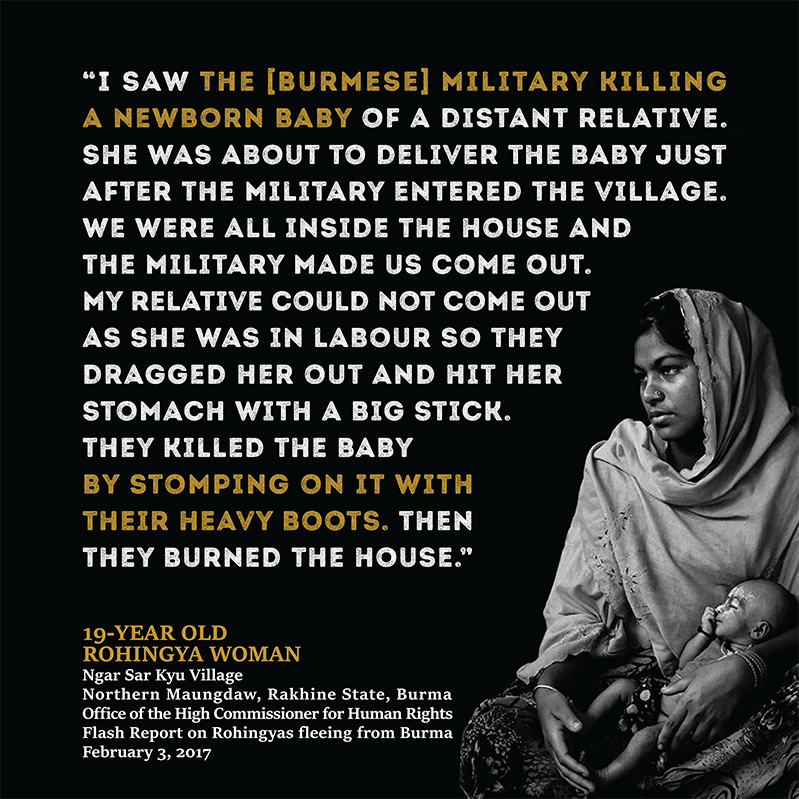



 Zafar Bangash
Zafar BangashThere are clear signs of deep divisions among the members of Bani Saud that point to serious trouble in the days ahead. Largely the result of Crown Prince Muhammad bin Salman’s grab for unlimited (unaccountable) power and the disastrous policies he has pursued unilaterally, there is great unease among other members of the ruling family that may explode into open warfare.
While the demented King Salman appears largely oblivious to what is going on around him, his son, the arrogant and erratic Bin Salman (BS) continues to make policy blunders that other family members fear would spell doom for the clan. Former Crown Prince and Interior Minister Muhammad bin Nayif was unceremoniously dismissed from both posts last June and is now reported to be under house arrest. The move was engineered by Bin Salman to pave the way for his own accession to the throne.
Last month, there was more trouble when a number of prominent clerics and intellectuals were arrested. Among the 40 or so people arrested was also Prince ‘Abd al-‘Aziz bin Fahd, favorite son of the late King Fahd. Why ‘Abd al-‘Aziz went afoul of Bin Salman was not immediately clear but reports from inside the Kingdom say that he had voiced criticism of recent regime policies.
Betraying great nervousness, Saudi security personnel arrested the well-known scholar, Salman al-‘Awdah, from his house on the night of September 9. What was al-‘Awdah’s sin? He had prayed — yes, prayed — for rapprochement bet-ween Saudi Arabia and Qatar in the interests of both peoples. Al-‘Awdah had tweeted to this effect — he has 14 million followers — in the aftermath of the news that US President Donald Trump had urged Bin Salman and Qatar’s ruler Tamim bin Hamad to patch up their differences.
Taking orders from their master, Tamim phoned the Saudi crown prince and the two had a conversation but Bin Salman’s oversized ego got the better of him when the Qataris reported that the two had spoken (no mention was made about who had initiated the phone call). Was it that critical for the upstart Saudi to not be seen as “giving in” by the initiation of a simple phone call? Following the latest spat, the two regimes were back to name calling and hurling allegations. A brawl among children in the schoolyard would be more dignified.
While these theatrics were underway, simultaneously a number of other developments were also occurring, all signifying Bin Salman’s deep fear and anxiety.
According to activists on social media as well as the London-based Saudi opposition group, ALQST, among the people arrested were, in addition to al-‘Awdah, several other scholars, namely ‘Awad al-Qarni, Hasan Farhan al-Maliki, Mustafa Hasan, and ‘Ali al-‘Umari.

The Saudi State Agency (SPA), the regime’s mouthpiece, reported on September 12 that the authorities had uncovered “intelligence activities for the benefit of foreign parties” by a group of people in the Kingdom. The SPA did not identify the people nor what kind of intelligence activities they were involved in and for which foreign entity. The insinuation pointed to Qatar, which has links with many Saudi families.
For weeks now, rumors have been circulating that the king would abdicate in favor of his son, Muhammad bin Salman. Given the king’s mental state and the tight control Bin Salman has over who can see him, what is likely to happen is that the crown prince will get his ailing father to sign a paper transferring power to him without the king knowing about it.
Even if he knew, the king is in no position to prevent this. Besides, there are reports that he is keen to transfer power to his son during his lifetime to forestall a family revolt. Bin Salman, who dominates the Kingdom’s economic, political, military, and domestic security policies, has made a mess of everything. He is referred to as “Mr. Everything” and thus cannot escape responsibility for the ills that have befallen the Kingdom.
The imperialist-Zionist-Saudi war on Syria has been lost as the Syrian army backed by allies Iran, Hizbullah, and Russia, continues mopping up the last remnants of takfiri terrorists. The war on Yemen that was launched by Bin Salman in March 2015 is going nowhere. The Saudis have bombed dirt-poor Yemen, causing massive casualties, but Bani Saud, and more particularly Bin Salman, have failed to achieve any of their military or political objectives.
The news on the economic front is equally bad. Once considered the financial engine of the Muslim East and beyond, Saudi Arabia has become a virtual basket case. At the end of August, it was announced that Riyadh had gone to the International Monetary Fund (IMF), cap in hand, for a $10 billion loan. This would have been unthinkable a few years ago.
What forced Bani Saud to take this humiliating step when they have more than $750 billion stashed away in US Treasury securities? Washington has blocked these funds. The reason is that America’s Justice Against Sponsors of Terrorism Act (AJASTA) that was passed by Congress in 2016 allows families of 9/11 victims to file lawsuits against Saudi Arabia for “supporting” terrorism.
On March 20, 2017, that is precisely what happened: 1,500 survivors and 850 relatives of victims of the 9/11 attacks filed a class action lawsuit against Saudi Arabia seeking $100 billion in damages. The lawsuit alleges that the Saudi regime had prior knowledge of the 9/11 attacks and that some of its employees were al-Qaeda operatives or sympathizers.
While the US’ official version of the 9/11 attacks that 19 individuals, among them 15 Saudis, hijacked four jetliners in the early morning of 9-11-2001 has been widely discredited, this has not prevented victims’ families from seeking compensation. The official version is that the 19 hijackers using box cutters overpowered airline crews and pilots and commandeered the four planes. Two of them were flown into the twin towers of the World Trade Centre. Another plane allegedly struck the Pentagon while the fourth crashed in Pennsylvania.

Not one of the alleged hijackers had a commercial pilot license; in fact they were complete novices. They could not even fly a single engine plane straight. How could they fly wide-bodied commercial jetliners at top speed and slam them into buildings, a feat that even highly skilled air force pilots cannot easily achieve?
Such contradictions notwithstanding, the lawsuit against the Saudi regime has resulted in their assets being frozen for the time being. While the court system works at snail’s pace and even if the case is eventually thrown out, it will be years before the Saudis can get hold of their money. In fact, it is quite likely that the Americans will come up with some other excuse to not return the funds.
Coupled with low oil prices — the main source of revenue for Saudi Arabia, the other being pilgrimage fees — the exorbitant cost of the war on Yemen and the profligate lifestyle of the army of Saudi “royals” is a recipe for disaster. At a time of political transition when Bin Salman is trying to buy the loyalty of people, he has been forced to go to the IMF.
The many economic plans Bin Salman had announced with such fanfare have faltered or been abandoned. Take the example of the National Transformation Plan (NTP), a key element of his bid to dramatically alter the economic and social realities of the Kingdom. The plans and targets have all been abandoned. While the NPT morphed into Vision 2030 — it has a nice ring to it no doubt — the vision, distant as it is, has blurred and become even more remote and largely untenable.
Bin Salman’s plan was to “reform” the economy by relying more on the private sector to create one million jobs by 2020 and slash public sector spending as well as benefits to civil servants. There is nothing wrong with this in principle but a country addicted to oil revenues where members of the royal family, civil servants, and army personnel have their snouts in the public trough, this was going to be a herculean task.
As soon as the policy was announced last year, there was massive backlash on the social media. While contemptuous of public sentiment, this was one front the regime could not ignore. In April it was forced to make a grand retreat rolling back a decision to slash benefits to civil servants and military personnel. Seeking a loan from the IMF, however, will force the regime to reintroduce these measures. This is what the IMF demands of all its clients: removal of all subsidies on food, fuel, and other perks as well as opening up the country to foreign acquisition of its assets. Resource-rich Africa has suffered and has been completely impoverished through what is euphemistically called Structural Adjustment Programs (SAP).
Saudi Arabia will not escape the IMF’s attrition scheme either. Bani Saud may be heading back to their desert tents in Najd in the not too distant future.
Bin Salman’s troubles at the political level are even more serious. He has unnecessarily entangled himself with Qatar. At home, his real challenge will be the removal of Mut‘ib bin ‘Abdillah, powerful head of the National Guard from his post. Mut‘ib is seen as a real threat to Bin Salman’s ambitions.
There is a history of bad blood between them. When King ‘Abdullah was in a coma on his deathbed, Mut‘ib and ‘Ali al-Tuwayjiri, head of the royal court, kept this a tightly guarded secret while they concocted a plan. The plot was to forge ‘Abdullah’s signature on a decree dismissing Salman as crown prince and appointing Mut‘ib to the post instead. He would have become king upon ‘Abdullah’s death in January 2015.
Salman and his son Muhammad got wind of it and frustrated the plot before it could be carried out. Not surprisingly, soon after Salman became king, al-Tuwayjiri was dismissed and many of ‘Abdullah’s sons were also sidelined. But Mut‘ib is a more difficult nut to crack because he has a tight grip on the Saudi National Guard, a military outfit.
This is where things are likely to get messy. Mut‘ib is no pushover like Muhammad bin Nayif. He has close links with the tribes, mainstay of the National Guard. They are loyal to Mut‘ib, not Bin Salman. Thus any hasty attempt to remove Mut‘ib could backfire.
So what does Bin Salman propose to do to get the people on his side, 70% of whom are below the age of 25? He has come up with another hare-brained idea: to open a holiday resort on one of the islands in the Red Sea northwest of the country. On this island, Saudi men and women — and of course young women imported from Europe — will be allowed to let it all hang out. There will be gambling casinos and watering holes, just like the beaches in France or Spain. Young Saudis do not need to go to France anymore to have fun; Bin Salman plans to bring the French Riviera to the Red Sea!
